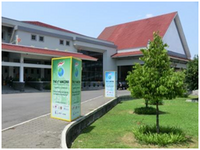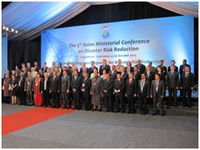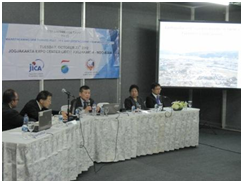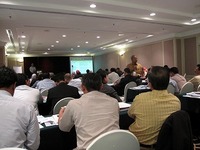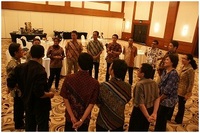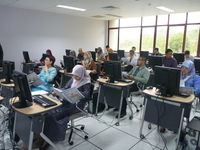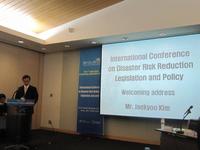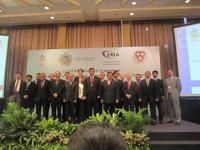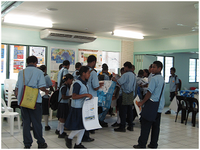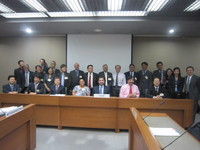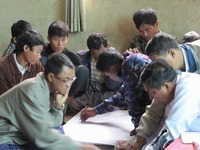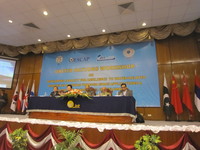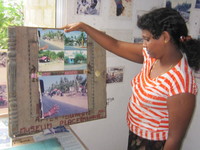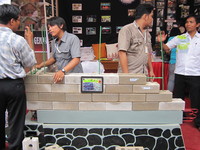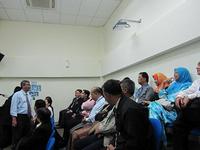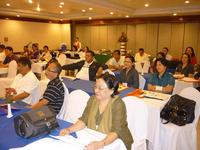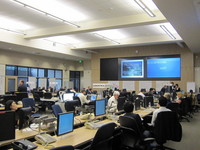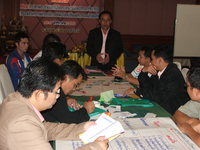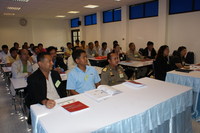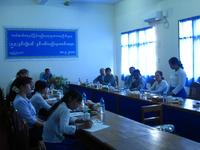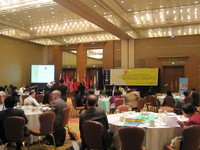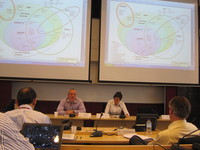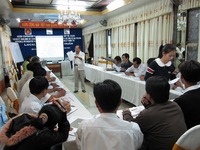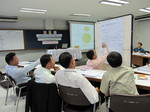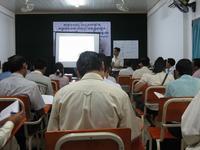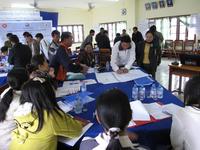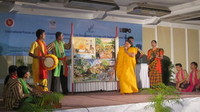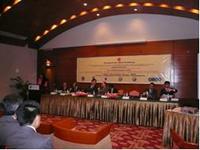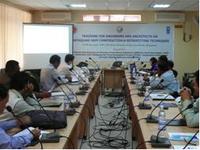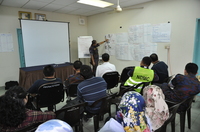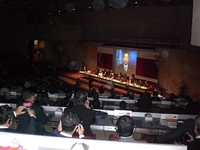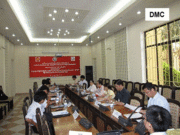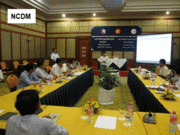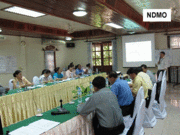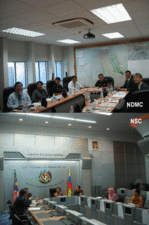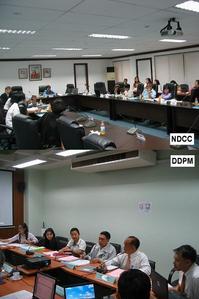12-13 November 2024 (Hanoi, Vietnam)
The Asian Conference on Disaster Reduction (ACDR2024) was organized in Hanoi, Vietnam on 12-13 November 2024, hosted by the Vietnam Disaster and Dyke Management Authority (VDDMA), in cooperation with the Cabinet Office, Government of Japan and Asian Disaster Reduction Center (ADRC). As announced in the previous issue of the ADRC Highlights, this issue provides details of the conference. The documents for the conference are available on the website below.
ACDR2024 website: https://www.adrc.asia/acdr/2024_index.php
Opening Session
Mr Nguyen Hoang Hiep (Vice Minister of Agriculture and Rural Development, Government of Vietnam), Mr NUKINA Koji (Assistant Vice Minister for Disaster Management, Cabinet Office, Government of Japan) and Prof. HAMADA Masanori (Chairman, ADRC) delivered the opening remarks stressing the important of role of ADRC in reducing disaster risk in Asia, as well as needs of enforcing disaster countermeasures, and impacts and challenges of recent disasters.
Roundtable
Fifteen member countries, namely: Brunei Darussalam, Cambodia, Japan, Republic of Korea, Lao PDR, Malaysia, Mongolia, Myanmar, Pakistan, Papua New Guinea, Philippines, Singapore, Sri Lanka, Thailand, and Vietnam delivered official statements at the roundtable on "Challenges and Progress in Implementing the Actions Related to Resilience to Climate Crisis in the Sendai Framework for Disaster Risk Reduction (SFDRR)," which was moderated by Ms Doan Thi Tuyet Nga (Director of International Cooperation and Science Technology Department, VDDMA). Overall, the statements highlighted common strategies on strengthening resilience to climate crisis such as "enhance support mechanisms for climate action," "bolster financing options for mitigation of climate crises," and "embrace science and technology to strengthen climate resilience."
Session 1: Enhancing Flood and Flash Flood Risk Information
Moderated by Prof. MIURA Fusanori (Yamaguchi University, Japan), this session showcased the latest technologies that could help enhance flood and flash flood risk information.
- Associate Prof. Demetrios Eliades (University of Cyprus) presented examples of AI-enabled systems for monitoring and forecasting risk that are useful for flood modelling and flood risk assessment. Additionally, he presented how Low-Power Wide Area Network (LPWAN) communication technology can be useful in disseminating flood risk information, particularly in areas that have limited access to cellular networks or WiFi.
- Prof. SHUMUTA Yoshiharu (Center for Asian Studies, Kanagawa University) introduced sensing technologies for disaster response and recovery. For instance, in the risk assessment management system for power lifeline (RAMP), various sensors are utilized to improve the performance of temporal and spatial interpolation.
- Prof. MIURA outlined the current situation of utilizing satellite data for disaster management. He said that there are various forms of cooperation in using satellite data including Sentinel Asia and the Consortium for Satellite Earth Observation (CONSEO) in Japan. However, in delivering the services, publicly-owned and privately-owned satellites work independently. As shown in the result of "disaster prevention drill," independently-provided satellite service is less effective. To make it more effective, a "satellite one-stop system" was introduced to optimize the role of satellites in disaster management.
- Dr Masita Dwi Mandini Manessa (Lecturer, Geography Department, University of Indonesia) highlighted the role of spatial machine learning in predicting landslides and floods in agricultural systems of Magelang Regency in Indonesia. Predictions using spatial machine learning estimate that approximately 38% of high-productive agricultural lands will be exposed to high flood risk.
- Mr Nguyen Xuan Sang (Deputy Director of Agriculture and Rural Development Department, Yen Bai Province, Vietnam) reported the impacts of landslides in Yen Bai Province caused by Typhoon Yagi. Lessons from that experience include the need for improving technologies for forecasting and early warning systems for landslides.
- Mr Hoang Minh Tuan (Head of Disaster Management Administration, Irrigation Sub-Department, Agriculture and Rural Development Department, Cao Bang Province, Vietnam) shared lessons from responding to Typhoon Yagi in Cao Bang Province. Among these are the need for better technologies for search and rescue operations, including the use of drones.
Session 2: Improving Flood Countermeasures Based on Analyses of Future Risk for Disaster Risk Reduction (DRR) and Climate Change Adaptation (CCA)
Dr Nguyen Nghia Hung (Deputy Director of Southern Institute for Water Resources Research) moderated this session. Speakers on this session shard principles and approaches in improving flood countermeasures for DRR-CCA.
- Mr SUZUKI Takashi (Advisor for Disaster Risk Management at VDDMA/ JICA Expert) emphasized the concept of "kaizen," a Japanese term for continuous learning and improvement (e.g., failure, science, and world). Applying the concept of gkaizen" helps improve flood countermeasures, such as through scientific river improvement and integrated river basin management.
- Dr ONO Takahiro (Special Appointed Professor, Tohoku University/ General Manager, Tokio Marine Holdings) highlighted the benefits of"ex-ante investment" or pre-investment in disaster risk reduction. Initiatives such as the Business Continuity Plan (BCP) and the Disaster Mitigation Action Plan (Timeline) are examples of ex-ante investment that reduce post-event economic contractions and speed-up post-disaster recovery.
- Mr Junha Kim (Head of Team, Ministry of the Interior and Safety, Republic of Korea) reported that the implementation of flood countermeasures in the Republic of Korea include: 1) proactive disaster preparedness by ensuring the readiness of institutions in implementing pre-emptive evacuation to reduce casualties; and 2) collaborative disaster management by engaging all stakeholders in disaster governance.
- Ms Angsumalin Angsusingha (Disaster Management Expert, Disaster Management Center, Thailand) shared a case study of flooding in Northern Thailand, and how the DDPM addressed the challenges. She presented the "Solution Framework," a community-centred approach, that DDPM applied in addressing flooding situations. Basically, the "Solution Framework" embraces a community-based disaster risk management (CBDRM) approach.
- Mr Le Anh Dung (Director of Irrigation Sub-Department, Agriculture and Rural Development Department, Ha Giang Province, Vietnam) shared about the damage caused by Typhoon Yagi in Ha Giang Province. He reported that impacts were severe, yet the external support for emergency response was limited. To address this challenge, Ha Giang Province will continue to train community-based "first-responders" to optimize local capacities.
Special Session: Disasters and Disaster Management in Vietnam
Moderated by Mr SUZUKI (Advisor for Disaster Risk Management at VDDMA/ JICA Expert), this special session provided an overview of the disasters and disaster management in Vietnam. Highlighting floods, flash floods, and landslides in the context of Typhoon Yagi that impacted several provinces in Vietnam in September 2024, this session showed examples and challenges of disaster management in the areas of preparedness, prevention and mitigation, response, and recovery.
- Mr Nguyen Xuan Tung of VDDMA reported the situation of flash floods and landslides in the northern mountainous region of Vietnam over the past 10 years. To reduce future impacts, his?recommendations include: strengthen communication systems, raise community awareness, build local capacity for response, detailed regional accurate forecasting, early warning system, and household-level disaster management planning.
- Mr Quan Van Viet from Lao Cai Province reported the impacts of Typhoon Yagi in Lao Cai Province, causing serious damage to people, property, infrastructure, and disrupting social activities. To effectively address the impacts of similar disaster in the future, he mentioned the following: making the infrastructure more resilient, improving the forecasting and early warning systems, and strengthening data collection and risk analysis.
- Mr Luong Khac Kien from Son La Province introduced the pilot model for flash flood prevention in Son La Province under the technical cooperation between the Government of Japan and Vietnam.
- Mr Pham Quoc Hung from Yen Bai Province introduced the capacity building on landslide early warning that is being piloted in Tram Tau District, Yen Bai Province under the technical cooperation between the Government of Japan and Vietnam.
- Mr Doan Manh Phuong from Quang Ninh Province reported that Typhoon Yagi severely impacted the agricultural production affecting the livelihoods of people in Quang Ninh Province. Actions to address the challenges include support for: 1) school tuition, 2) needs of the agricultural sector, 3) repair of damaged houses, 4) demolition of submerged fishing boats, and 5) development of sustainable aquaculture.
- Dr Nguyen Nghia Hung of the Southern Institute for Water Resource Research presented the challenges in addressing river bank and coastal erosion in the Mekong Delta.
- Mr Ngo Huu Huy of VDDMA presented the Vietnam Disaster Monitoring System (VNDMS), a system that supports disaster prevention and control (DPC) management through data integration and connectivity with various ministries, line agencies, organizations, and local authorities.
- Ms Dam Thi Hoa of VDDMA provided an overview of the Ha Long Ministerial Statement on the Strengthening of ASEAN Anticipatory Actions in Disaster Management to show Vietnam's role in international cooperation for DRR.
Closing Session
The conference concluded with speeches from Mr Pham Duc Luan (Director-General of the VDDMA, MARD, Vietnam), Mr NUKINA Koji (Assistant Vice Minister for Disaster Management, Cabinet Office, Government of Japan), and Prof. MIURA Fusanori, newly appointed Chairman of ADRC, who mentioned their expectations for ADRC and member countries to further promote DRR taking into account climate change, in addition to the crucial role of ADRC to implement the SFDRR in the remaining five years.
(2024/11/20 15:00)


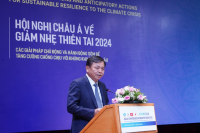
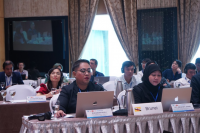
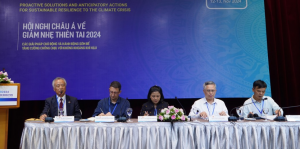
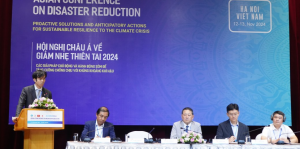
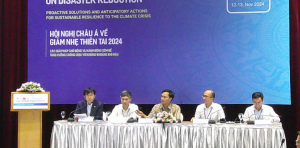
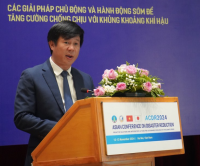
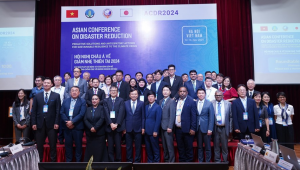
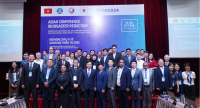
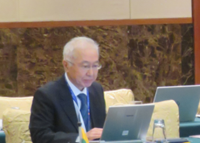
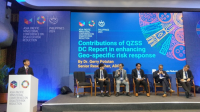
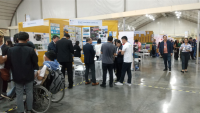
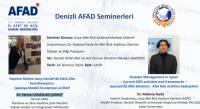
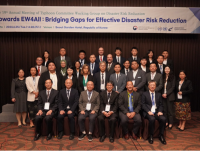
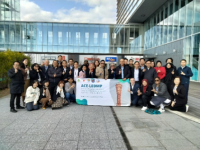
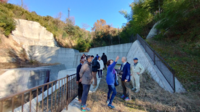
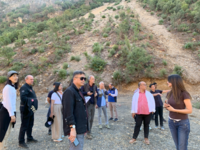
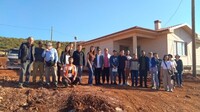
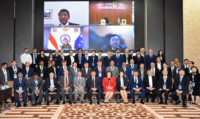
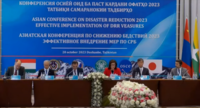
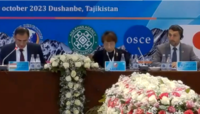
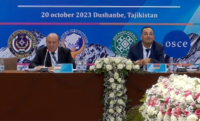
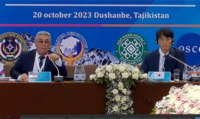
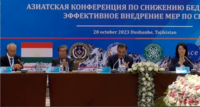
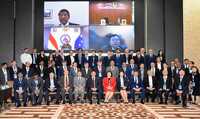
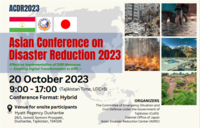

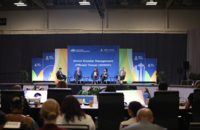
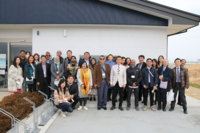

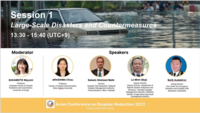
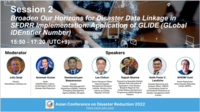
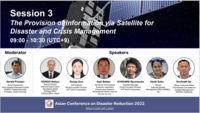



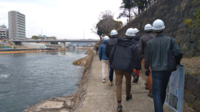
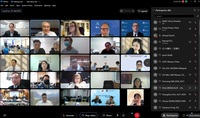


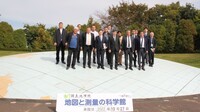
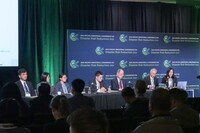
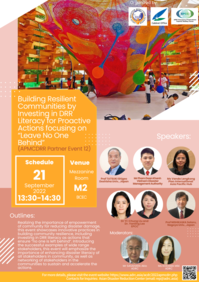
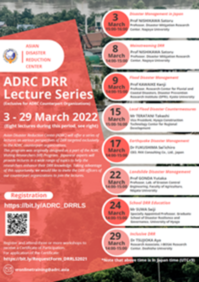
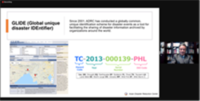
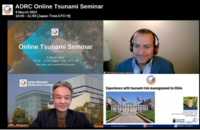
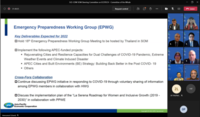
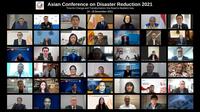
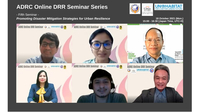
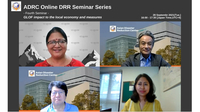
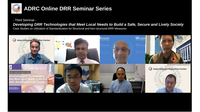
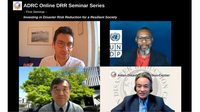
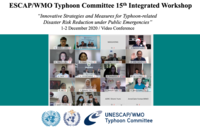
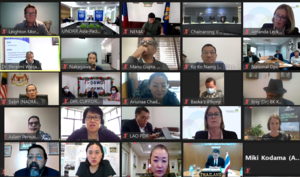
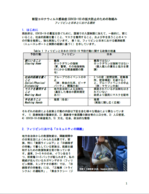
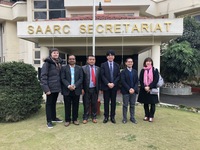

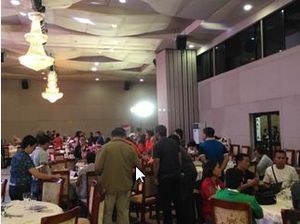

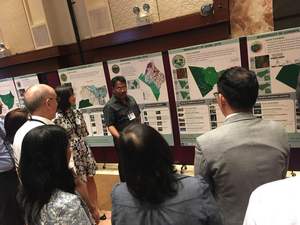
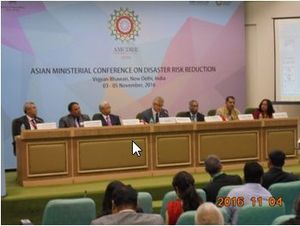
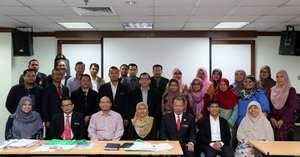
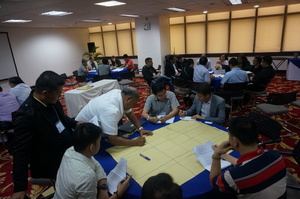
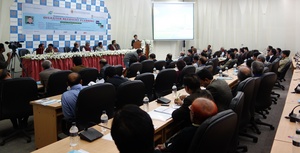
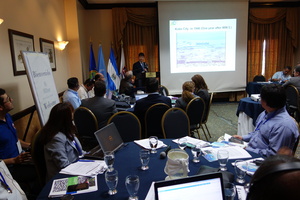
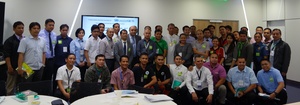
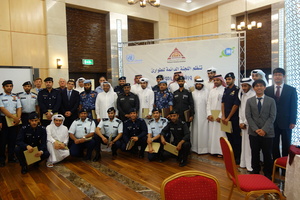
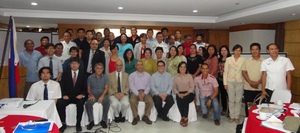
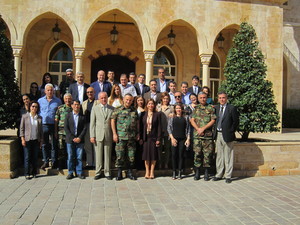
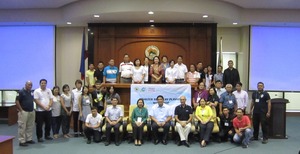
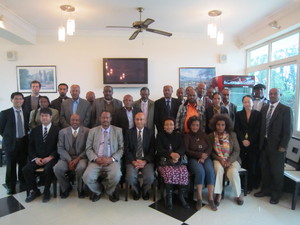
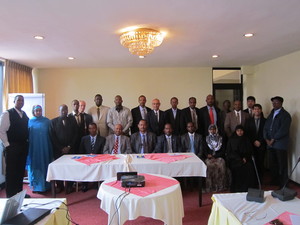
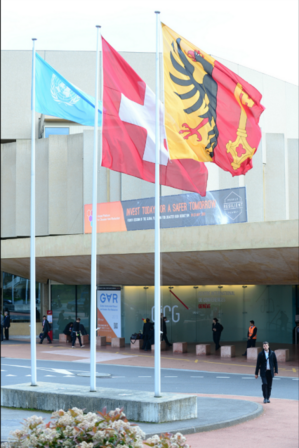
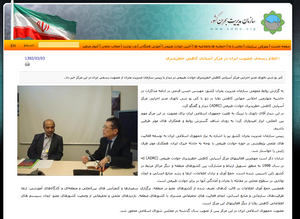
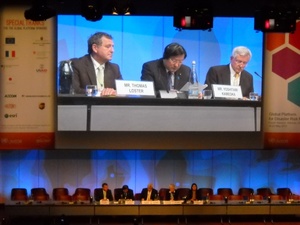
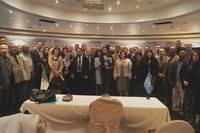
-thumb-200x133-1339.jpg)
-thumb-200x150-1336.jpg)
